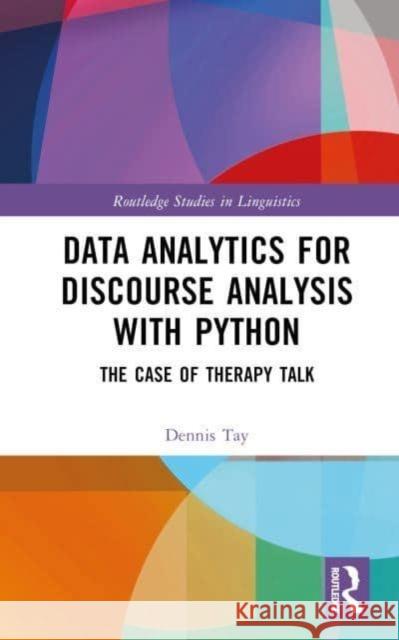Data Analytics for Discourse Analysis with Python » książka
topmenu
Data Analytics for Discourse Analysis with Python
ISBN-13: 9781032419015 / Twarda / 2024 / 160 str.
Data Analytics for Discourse Analysis with Python
ISBN-13: 9781032419015 / Twarda / 2024 / 160 str.
cena 757,61
(netto: 721,53 VAT: 5%)
Najniższa cena z 30 dni: 654,86
(netto: 721,53 VAT: 5%)
Najniższa cena z 30 dni: 654,86
Termin realizacji zamówienia:
ok. 16-18 dni roboczych.
ok. 16-18 dni roboczych.
Darmowa dostawa!
This concise volume, using examples of psychotherapy talk, showcases the potential applications of data analytics for advancing discourse research and other related disciplines.











